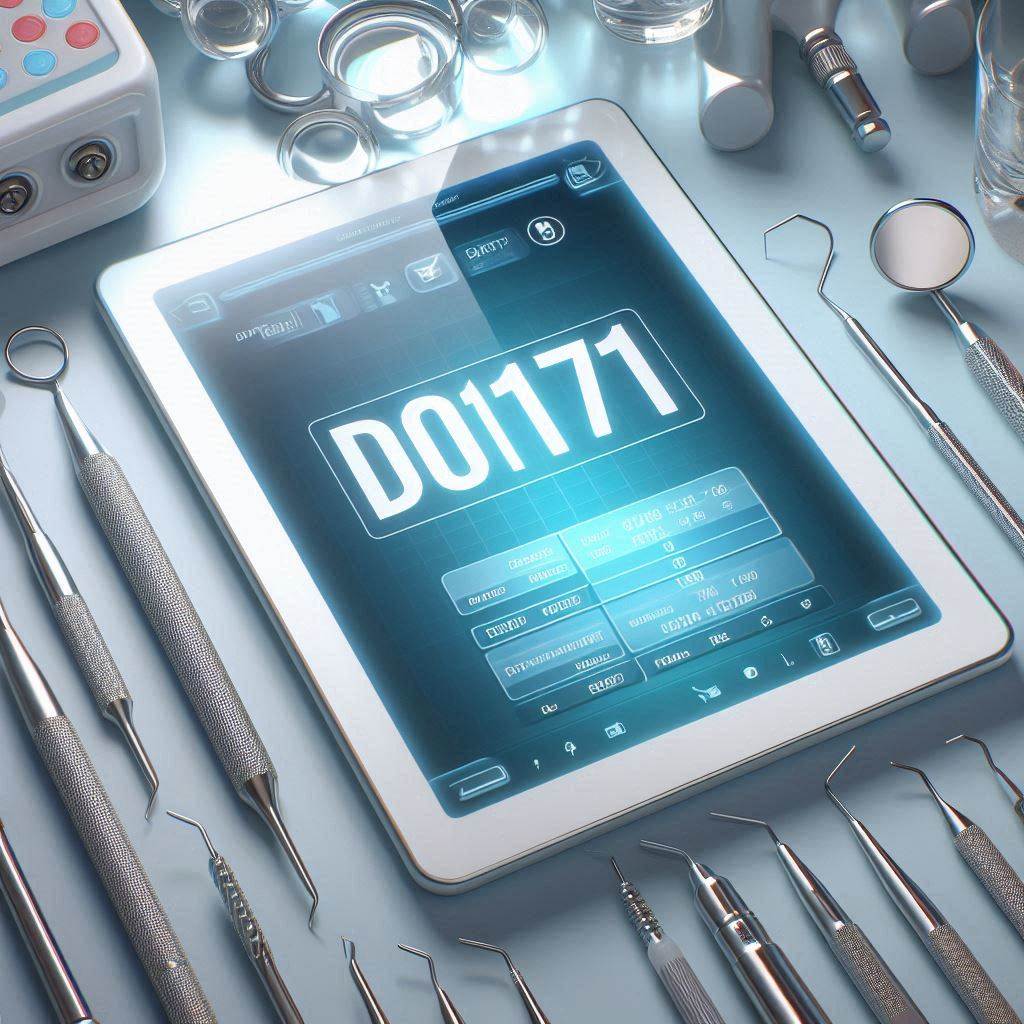Dental Code D0171
Dental procedures require precise documentation and coding to ensure proper billing, insurance claims, and patient care. Among the many codes used in dentistry, D0171 stands out as a critical yet often misunderstood re-evaluation code. Whether you’re a dentist, hygienist, or billing specialist, understanding D0171 is essential for accurate patient records and financial compliance.
This comprehensive guide explores D0171 in depth—its definition, appropriate usage, documentation best practices, and common pitfalls. By the end, you’ll have a clear understanding of how and when to apply this code effectively in your practice.

2. Understanding Dental Code D0171
Definition and Purpose
D0171 is defined by the American Dental Association (ADA) as:
“Re-evaluation – limited, problem focused (established patient; not post-operative visit).”
This code is used when a dentist needs to reassess a patient’s condition after an initial evaluation or treatment but does not involve a full comprehensive exam.
When Is D0171 Used?
- Follow-up assessments after non-surgical treatments (e.g., medication reviews, minor adjustments).
- Monitoring unresolved issues (e.g., persistent pain, healing progress).
- Evaluating treatment complications (e.g., unexpected reactions to fillings or extractions).
Unlike post-operative visits (which have separate codes), D0171 applies to non-surgical reassessments.
3. Key Differences Between D0171 and Other Evaluation Codes
| Code | Description | When to Use |
|---|---|---|
| D0120 | Periodic oral evaluation (established patient) | Routine check-ups, no specific issues. |
| D0150 | Comprehensive oral evaluation (new patient) | First-time visits, full assessment. |
| D0160 | Detailed and extensive evaluation (existing patient) | Complex cases requiring in-depth analysis. |
| D0171 | Re-evaluation, limited, problem-focused | Follow-up for specific concerns (non-surgical). |
Key Takeaway:
- D0120 = Routine check-up.
- D0150/D0160 = New or complex evaluations.
- D0171 = Problem-focused re-evaluation.
4. Clinical Scenarios Requiring D0171
Post-Treatment Follow-Ups
Example: A patient returns after a deep cleaning (SRP) complaining of lingering sensitivity. The dentist performs a limited re-evaluation (D0171) to assess gum healing.
Monitoring Ongoing Conditions
Example: A patient with oral lichen planus requires periodic D0171 visits to monitor lesion changes without a full exam.
Assessing Treatment Complications
Example: A patient reports discomfort weeks after a filling. The dentist uses D0171 to check for decay recurrence or bite issues.
5. Documentation and Billing Best Practices
Proper Charting for D0171
- Clearly note the reason for re-evaluation.
- Document findings and next steps.
- Avoid using D0171 for post-op visits (use D0140 instead).
Insurance Considerations
- Some insurers may deny D0171 if documentation is insufficient.
- Always link the re-evaluation to a prior treatment (e.g., “Follow-up on tooth #19 after filling on MM/DD/YYYY”).
6. The Role of D0171 in Patient-Centered Care
Using D0171 correctly ensures:
✔ Focused care for unresolved issues.
✔ Efficient use of appointment time.
✔ Better insurance transparency.
7. Legal and Ethical Considerations
- Do not overuse D0171 for unnecessary visits.
- Stay compliant with ADA coding standards to avoid audits.
8. Case Studies
Case 1: A patient with TMJ discomfort returns after a night guard fitting. The dentist uses D0171 to adjust the guard and assess pain levels.
Case 2: A diabetic patient with slow-healing gums is monitored via D0171 every two weeks.
9. FAQ Section
Q: Can D0171 be billed with other procedures on the same day?
A: Yes, if the re-evaluation is separate from other services (e.g., D0171 + D1110 prophylaxis).
Q: How often can D0171 be billed?
A: Only when medically necessary—avoid frequent use without justification.
Q: Is D0171 covered by Medicaid?
A: Coverage varies by state; verify with local guidelines.
10. Conclusion
Dental code D0171 is essential for targeted patient re-evaluations. Proper usage ensures accurate billing, compliance, and high-quality care. By following ADA guidelines and maintaining thorough documentation, dental professionals can optimize patient outcomes and practice efficiency.


